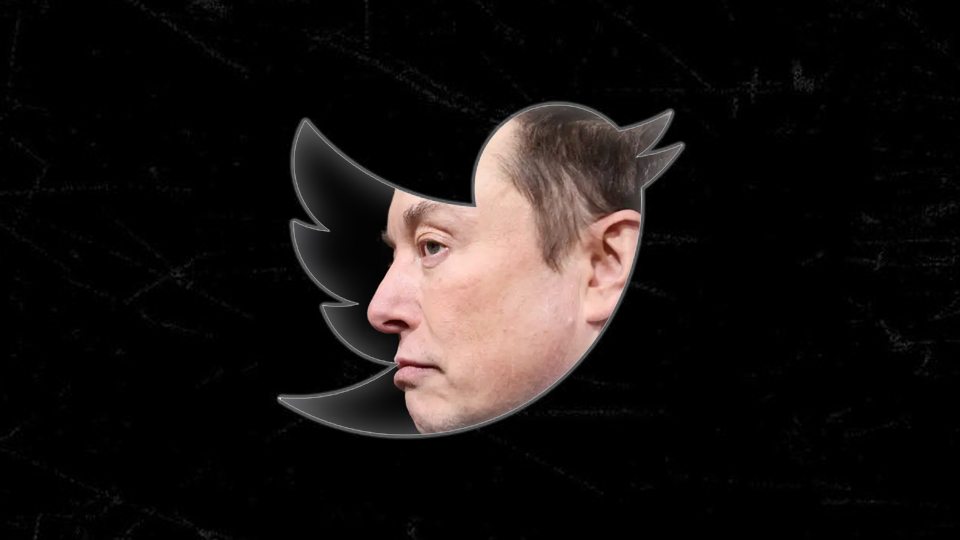Elon Musk's X is now worth 72% less than the $44 billion he paid for Twitter just a year ago
It hasn't been a great year for Twitter's value.

It's been quite the year for X, the company that was formerly known as Twitter — a name that many still continue to use despite the branding having long been removed from the social network's website and apps. Twitter was bought by Tesla and SpaceX CEO Elon Musk back in November of 2023, and around a year later it's fair to say that the last 12 months have been eventful ones.
How eventful? Somewhat predictably, Musk buying Twitter caused quite a stir in late 2022 and that was before he fired a chunk of its workforce, changed its name, and set about adding new features including an X Premium+ subscription that is designed to bring in some much-needed recurring revenue.
But with X now being a private company it's difficult to see just how things are really going. It's no secret that advertisers have left X in droves since Musk's recent antisemitic outburst and that's something he says could kill the company. But even if Musk decided to ditch X before that happens, he'll struggle to recoup his money. In fact, new analysis claims that Musk should expect to take quite the hit if he did try to sell a company that is now thought to be worth a staggering 72% less than it was when he bought it.
Hey big spender
This is according to new numbers shared by Fidelity, an outfit that revalues private shares albeit on a one-month lag, as noted by Axios. That means that things might have gotten worse for Musk, although it's also possible they have improved.
According to an Axios report based on Fidelity's figures, "X is worth 71.5% less than at the time of purchase, according to a new disclosure that runs through the end of November 2023." That figure is made up of a 10.7% fall in November, around the same time as Musk's infamous "go F*** yourself" message to the same advertisers that could ultimately tank his company. For comparison, the same November period saw Meta's stock rise almost 5% and Snap's shares grow by more than 38%.
It's important to remember that it isn't clear just how much inside information Fidelity might have and Musk is certainly not sharing data with anyone. Axios also points out that "Fidelity began marking down its Twitter shares the first month after Musk's buyout" although it did at least keep its share value stable during some 2023 months. In fact, some also saw that value increase.
Interesting times ahead
Whether or not Musk's X post was antisemitic or not — he claims the latter — there is no denying that X advertisers are spooked. And while the social network continues to add new features like video and voice calling, it isn't clear just how popular any of its subscription offerings are.
iMore offers spot-on advice and guidance from our team of experts, with decades of Apple device experience to lean on. Learn more with iMore!
Fold into the mix the fact that Meta's own Threads social network recently launched in the European Union for the first time and X is under threat the likes of which it hasn't yet had to compete with.
As divisive as Elon Musk is, he hasn't gotten to where he is today without knowing how to make money. But with increasing competition and a growing dislike of the X brand and service as a whole, a huge public relations spin is going to be needed if the company is going to push on. Courting advertisers is surely at the top of the list of things that need to happen, likely shortly followed by stopping the company's owner from discussing the entities that could shutter it live on stage.
More from iMore

Oliver Haslam has written about Apple and the wider technology business for more than a decade with bylines on How-To Geek, PC Mag, iDownloadBlog, and many more. He has also been published in print for Macworld, including cover stories. At iMore, Oliver is involved in daily news coverage and, not being short of opinions, has been known to 'explain' those thoughts in more detail, too.
Having grown up using PCs and spending far too much money on graphics card and flashy RAM, Oliver switched to the Mac with a G5 iMac and hasn't looked back. Since then he's seen the growth of the smartphone world, backed by iPhone, and new product categories come and go. Current expertise includes iOS, macOS, streaming services, and pretty much anything that has a battery or plugs into a wall. Oliver also covers mobile gaming for iMore, with Apple Arcade a particular focus. He's been gaming since the Atari 2600 days and still struggles to comprehend the fact he can play console quality titles on his pocket computer.
